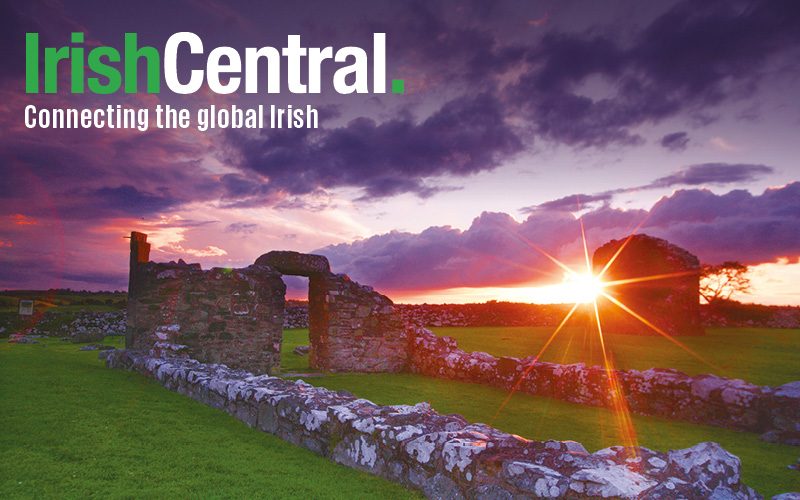The power and influence currently wielded by Irish America would make our ancestors blush. Our lives are no longer governed by arbitrary prejudice over Catholicism, assumptions that our work ethic was virtually nonexistent, alcohol consumption, or intentional relegation to Irish ghettos. These were brutal external threats it took hundreds of years to overcome.
Yet, judging from society today, overcome is exactly what we've done. We have people active at every level of government, longstanding publications focused on staying in touch with our roots and modern community, business owners able to pursue virtually any idea that excites them, and our children grow up away from the shadow of organized crime. Today, our threat is an internal one.
The threat, and choice therein, to put it bluntly, and honestly, is whether or not we are white. Are we content to pretend we've always been a part of that club? Do we take those undeniable privileges and join in the xenophobic and nationalistic fervor that's sweeping through white communities?
I hope not. To fade into white obscurity would dishonor the centuries-long struggle our ancestors endured, both here in the United States and in Ireland.
For the vast majority of what we've come to recognize as the white race's dominance of modern history, the Irish and Irish Americans were not counted. Conquering Roman armies shipped huge numbers of Celts into slavery, to the point that they caused a cultural collapse on a continental scale. Plantations in Ireland were an attempt to mix healthier blood into or breed out the native, subhuman population. On Montserrat, 20th-century black populations speak with a nearly Irish accent because Cromwell abducted and banished the Irish from their home. In some cases, Irish indentured servitude was virtually indistinguishable from African slavery. In an interracial effort, the Irish founded the first slum of America in the Five Points, the same neighborhood immortalized by Martin Scorsese as the place where Daniel Day Lewis's Bill the Butcher turned immigrants into corpses. 18th and 19th Irish immigration is dominated by the language we'd think was directed at modern Hispanic migrants.
I don't say this to strip any other group of their struggle. I say this in an attempt to recenter Irish descendants in their history. Refocus on how they got where they are and who had to suffer, fight, and often die so that others like them might not.
Today, I see Irish Americans who are more than willing to strip rights from immigrants, prolong foreign wars, siphon wealth from the poor to the rich, and solidify adversity in racial minorities' communities. These are methods that come from the exact playbook used to keep the Irish and Irish Americans in poverty and violence since the first rich Englishman decided an Irishman wasn't the same kind of human.
The Irish American community is a much more natural ally for African-American, Hispanic, Asian, and immigrant groups, even in spite of an often violently antagonistic history. Most of us alive today are only a generation or two removed from people who were in scarily similar circumstances to today's abused demographics. If we succumb to the insanity of white nationalism, the threat that pits our community against communities we should be allies with, we cannot celebrate our history.
I say “cannot” deliberately. If you say “should not,” you retain the option of celebrating. If you say “should not,” you still allow yourself to participate in St. Patrick's Day events or raise a toast to Parnell. You still allow yourself to feel pride on the anniversary of the Easter Rising and sing rebel songs touting the bravery and valiance of bold Fenian men. “Should not” allows you to do these things while feeling a twinge of guilt.
“Cannot” means you recognize the full hypocrisy of celebrating your ethnic history while denying others the chance to create their own. Parnell's fight for religious freedom doesn't begin and end with Catholics. Its principles should shape Irish American attitudes toward Islam. The Irish American Labor Movement doesn't only protect laborers of the mid 19th to mid 20th century. It shows how we can improve living conditions and reinvigorate stagnant wages and a declining middle class.
When Irish Americans do recognize their history, they weaponize it against the disenfranchised instead of those against whom it should be weaponized. Forced immigration and indentured servitude are not licenses to be horrendous to racial minorities as if we know something they don't. Forced immigration and indentured servitude are the common ground between us and should form the link between Irish Americans and the modern civil rights movement. If we allow ourselves to fade into whiteness, we forfeit any right we have to celebrate our ethnic past.
This article was submitted to the IrishCentral contributors network by a member of the global Irish community. To become an IrishCentral contributor click here.




Comments